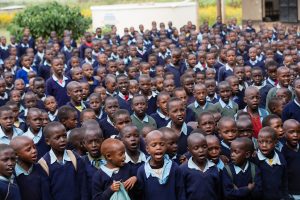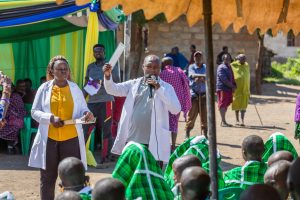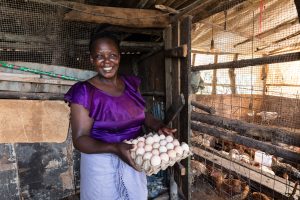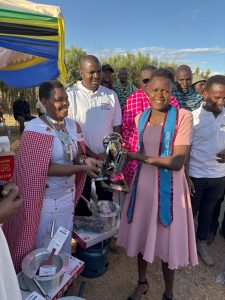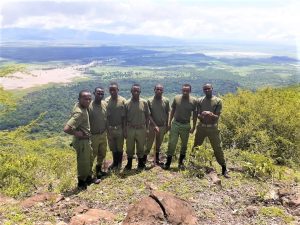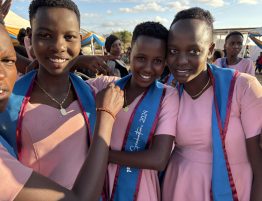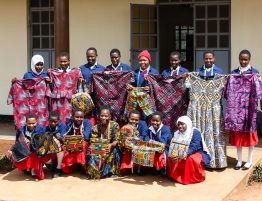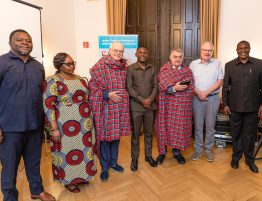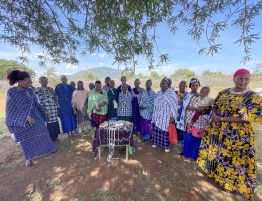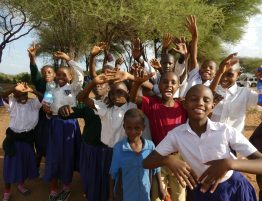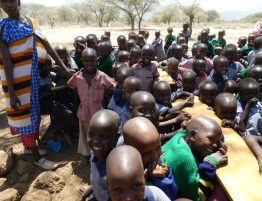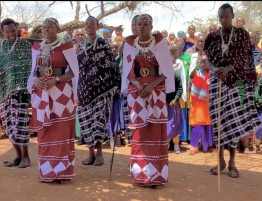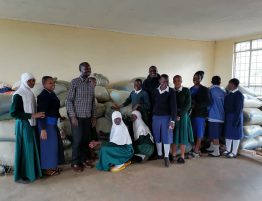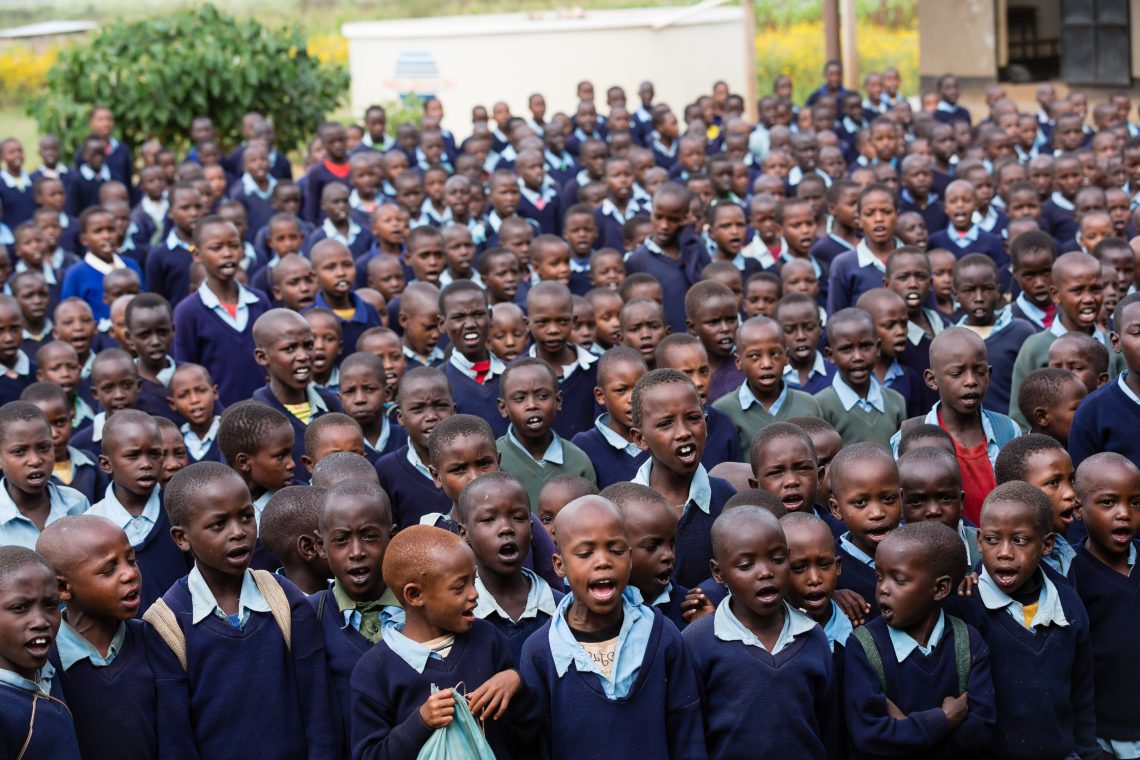
2024
Thanks to the financial support of our friends and sponsors 2024 was both an eventful as well as a successful year for us. Not only because we were able to celebrate the 10th anniversary of upendo and to welcome Queen Cuthbert, the Regional Commissioner (comparable to a Prime Minister in Germany) on a visit to Germany, but above all because we were able to successfully continue and expand our projects in Tanzania. In addition to the many school projects, this also applies to the capacity building projects such as the work with women or the campaigns for the acceptance of family planning. However, the highlight was undoubtedly the first graduation ceremony for the teenage girls, who – instead of being married off at a young age – undertook a two-year manual training programme after having left the Tanzanian school system.
School and water projects
Last year, ECLAT and upendo worked on 19 projects at 16 primary schools in Tanzania, both large and small. These included the renovation of old, run-down schools, the expansion of schools and the construction of new ones. Not all projects were carried out exclusively in 2024, some had started the year before and some are continuing this year. All projects were coordinated with the district government and the resulting projects were handed over to them. The population is gradually recognising the value of education and is sending a growing number of their children to school. And the government significantly increased the number of teachers in the Simanjiro district at the beginning of this year.
Thanks to the supervision of our Tanzanian partners the previously installed water projects continued to provide the population with clean drinking water also in the past year.
Family planning
Since 2022, our party organisation ECLAT has been conducting campaigns for the acceptance of family planning throughout the villages in order to convey to men in particular that, while having many children can be a desirable goal, children also need to be cared for and should have the opportunity for education and a decent life. In order to assess the acceptance of the campaigns of recent years, ECLAT carried out an evaluation in several villages last year. It became clear that the issue of family planning has been recognised by the population and that many already see the necessity of family planning for the future of Maasai society. ECLAT was also able to draw improvements for further campaigns this year from this evaluation.
Women’s work
ECLAT’s work with women was also significantly expanded in 2024. In addition to the regular training of women’s groups in the villages and in the women’s centre by ECLAT staff, a number of groups were intensively trained in building their own economic incomes. Some women’s groups learnt to buy young chicks after they had hatched, raise them and then sell them as chickens. Great importance was attached to intensive and comprehensive training. Particular importance was attached to hygiene measures for the chicks, the appropriate feed and disease control. Group members can buy the young chickens after rearing at a lower price than outsiders. This motivates the women in the group to earn their own income in addition to the group income. The women have to work closely together to raise the chicks and also coordinate their economic activities. In this way, they learn the basics of successful management from and with each other. Other groups have been trained to produce and successfully sell liquid and solid soaps. This year, these economic training courses are to be continued and expanded with the introduction of batik/textile dyeing for other women’s groups.
Training of teenage girls
After the moving celebration of the first teenage girls at the end of their two-year craft training last year in October, many of these girls have already started to earn their own income with what they have learnt and the tools they have received. Since then, ECLAT has organised campaigns, particularly in the district’s schools, to draw attention to the start of the new training courses in January this year and to motivate girls and their parents to apply for them. Not all of them were eligible or could be admitted, but now we are once again teaching girls aged between 14 and 20 at the training centre. The demand for training places was so great that we decided without further ado to take on more pupils than planned. The centre is well equipped and the ECLAT staff felt they could look after and train a few more of the girls. The exact number was not yet known when this letter went to press. Most of the girls, if not all of them, would otherwise be married soon. The construction work on the training centre has not yet been completed, so that some of the training is still taking place in the neighbouring ECLAT women’s centre, but the girls and the newly recruited teachers are already living in the new centre. The construction work is continuing and, step by step, more of the training will be moved to the new centre so that the women’s centre will then be more available for ECLAT’s women’s work.
Environmental protection and nature conservation
From the very beginning, has supported the PAMS Foundation in offering environmental education in schools. The vision of PAMS is a world in which wildlife and national parks are protected and where people can simultaneously live safely in their vicinity and understand the value of nature. As the wild animals in the parks threaten the livelihoods of the neighbouring population and the grasslands of the parks are not available as grazing areas for the Maasai herds, the population is hardly inclined to support the idea of animal welfare and nature conservation.
For young people in schools east and west of Tarangire National Park environmental education is the key to teaching the next generation about the importance of wildlife and the conservation of natural resources and thus contributing to the conservation of the national parks. The protection of the elephant corridor at the Ngorongoro Crater also continues, so that the elephants do not jeopardise the livelihoods of the farmers on their centuries-old migration routes and people learn not to see wild animals as a threat to their existence.
Photos: Rüdiger Fessel, Fred Heimbach, Catherine Maguzu, PAMS

